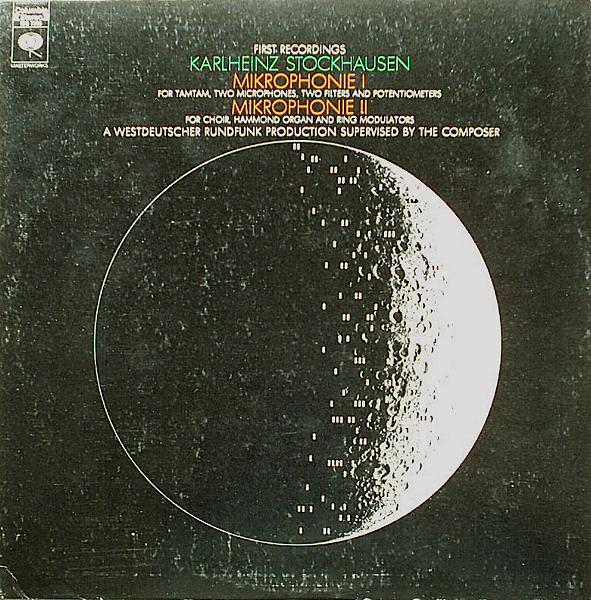11. Karlheinz StockhausenMikrophonie I & II

I rejected Stockhausen when I first heard him. When I was a teenager I aggressively felt that there was something wrong with it. This would have been the 90s, and my exposure to a lot of 60s and 70s electro-acoustic music made me feel like it was failure music, that pop music and jazz had so much more interaction with the recorded medium that electro-acoustic music just felt like a waste of time. I don’t know whether it’s that I am older or the musical landscape has changed, or my exposure to the musical landscape has changed, but the sonics of those early records and sounds of potentiometers and tape experiments is really necessary to my regular listening life. Part of that was a conscious decision to limit the tools that I used to make this record. All the drum machine stuff on the record was handmade sample by sample with an ARP 2600, which is even cheating because Stockhausen didn’t have that device. I definitely wanted to create something that felt as if it could have been created 40 years ago or could have been made today. What I’m taking from that now is less the serial aspect of it and more the sonic aspect. The moment I changed my mind about Stockhausen was when I was listening to the Demdike Stare Liberation… EP, which begins with a minute-long Stockhausen sample from Kontakte, and I was like, "Oh man, this sounds, that’s right." So I went back and tracked down the records on Discogs, and listened to all the stuff that I listened to at school. I’ve always felt that my strongest musical relationships are with artists that I don’t fully like, that I have a more fraught experience with, and the ones that change over time. Someone like Shostakovich, it’s good, I liked it when I was 15 and I like it now, but then there’s the stuff that challenges you and changes in your perception over time, like Beethoven.


